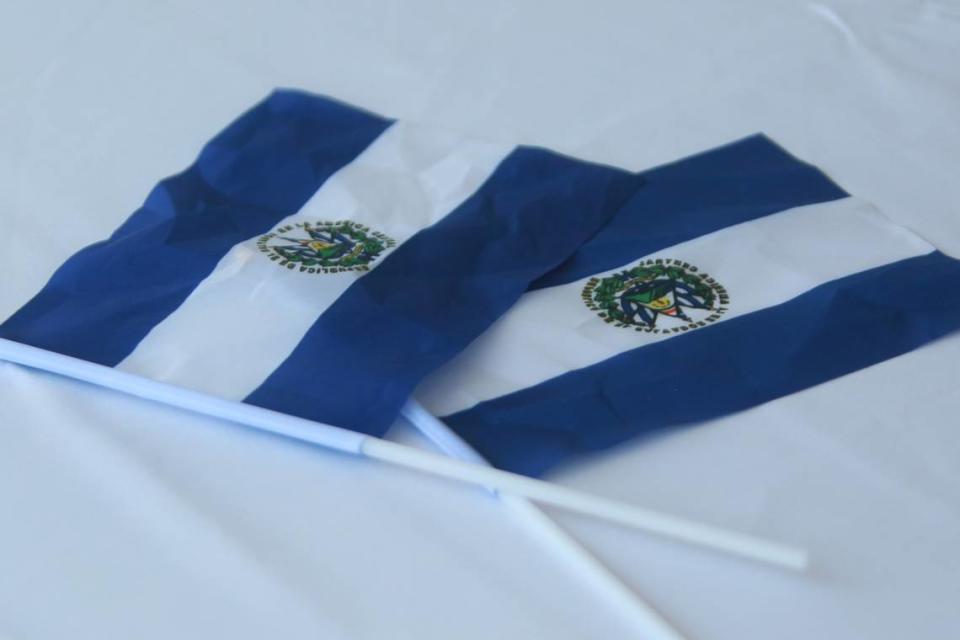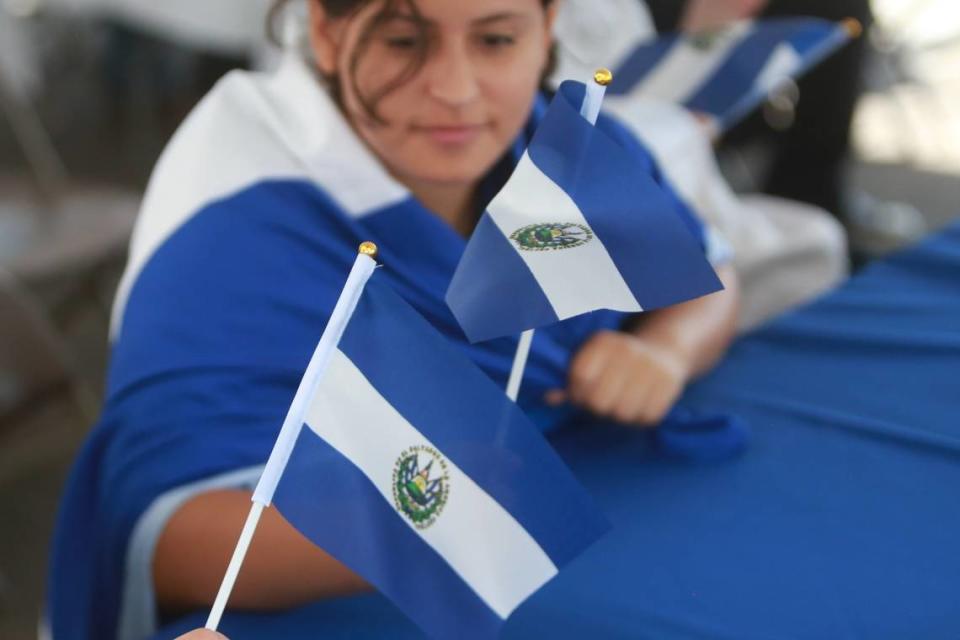Salvadorans in the Central Valley ready to vote in their country’s Feb. 4 elections
- Oops!Something went wrong.Please try again later.
For Salvadoran national Walter Ramiíez, a Fresno resident, several things excite him about El Salvador’s upcoming presidential elections to be held on Feb. 4.
Salvadorans abroad – including in the United States – will be able to vote remotely or online in the 2024 elections.
“What excites me most, of course, is being able to participate in my civic duty as a Salvadoran, to cast a vote for the best president,” said Ramárez, who in the Fresno Unified School District.
This would be the first time Ramírez, 39, would exercise his right to vote to elect the president, vice president, and deputies to his country’s legislative assembly.
It is very difficult to estimate the exact Salvadoran population in the Valley, according to Jason Manuel Castro Olivares, Consul General of El Salvador in Fresno. There are an estimated 35,000 Salvadorans in the San Joaquín Valley, with most of them in Mendota, Fresno, Salinas, Sanger, and Bakersfield.
Ramírez, who has lived in the United States for 23 years, said he is excited “to be able to contribute as a Salvadoran immigrant” who is aware of El Salvador’s politics.
“I am aware of what is happening with El Salvador and Salvadorans in El Salvador, and here in the United States, being able to create an impact by voting,” Ramírez said.
However, for Salvadoran Luis Jovel, voting abroad is “an irresponsible vote” as he feels that Salvadorans abroad do not realize “which candidates are running, who can fill the prospects for the future of the country.”
Jovel, a Fresno bootmaker, said that one cannot rely on information through the internet adding that he does not know for sure how many people are running for the presidency.
Among the candidates is current president Nayib Bukele, who is seeking re-election. Bukele won the presidency in 2019.
The winning candidate has to get a majority of the vote or it will go to a runoff in March, but that is unlikely because Bukele is overwhelmingly favored.
Jovel does not agree that there should be a presidential reelection because he feels that the country’s Constitution, which prohibits reelection, is being violated.
In 2021, the country’s Supreme Court ruled that one of its articles allows the president, who serves a five-year term, to run for reelection once.
“Bukele, it’s fine for him to be reelected for once, I agree,” Jovel said. “I don’t agree that after that one time, he will continue to be reelected.”
Jovel said it is OK for Bukele to be reelected is because five years in one term is not enough to “complete the exhaustive work that was needed.”
Jovel said that although El Salvador’s congress allowed Bukele to seek reelection, he hopes that it will not be a continuous reelection and that presidential terms will be established like in the United States where a president can be reelected once after serving one term.
The 68-year-old Salvadoran, who has lived in the United States for 42 years, said he hopes that Salvadorans abroad will methodically study what they are going to vote for before casting their vote to know what is in the best interest of the people.
“That they vote a little bit responsibly, that they study, that they find out who they are voting for, why they are voting and that they are responsible with their vote and that they do not go around telling anyone who they have voted for. Because the vote should always be secret,” said Jovel.
Voting abroad
For the upcoming Feb. 4 elections, almost 800,000 Salvadorans are registered to vote abroad, according to Transparencia Electoral, a non-governmental organization with 10 years of experience in promoting democratic values and secure elections in the Americas. The group is headquartered in Buenos Aires, Argentina.
“We estimate that 98% of those registered to vote abroad reside in the United States, mostly in the states of California and Texas,” said Eduardo Repilloza Fernández, general director of Transparencia Electoral, which has national coordinating offices in the U.S., Brazil, and México.
This year, the group will be working in El Salvador, Los Ángeles (March party primaries), México, the Dominican Republic, and Washington, D.C. (U.S. general elections), among others.
“Therefore, we are promoting the vote of all Salvadoran citizens of voting age in the U.S., informing where, when, and at what hours to vote,” said Repilloza Fernández. “An involved citizenry revitalizes and keeps democracy alive, and it is only through participation that what we believe can be improved can be improved.”
According to the Supreme Electoral Tribunal of El Salvador, voting abroad is easy and Salvadorans abroad have two ways to vote under the Special Law for the Exercise of Suffrage Abroad.
The modalities of voting abroad are:
▪ Remote vote online: it may be exercised by Salvadorans whose DUI (Single Identity Document) has been issued inside or outside the national territory and the domicile in the document is abroad.
Salvadorans can already vote online until 5 p.m. El Salvador time on Feb. 4.
▪ Electronic vote: It may be exercised by Salvadorans whose DUI is valid or expired, has been issued within or outside the national territory, and the domicile in said document is in the national territory.
Voting will take place on Feb. 4.
Those who have not registered to vote remotely through the Internet must go to one of the authorized polling places, whether consulates or other external locations. To consult the polling centers go to: https://www.tse.gob.sv/elecciones-2024/sufragio-en-el-extranjero
It will be possible to vote in these centers on Sunday, Feb. 4 between 7 a.m. and 5 p.m.
The voting center for Salvadorans living in the Central Valley, according to the website of the Supreme Electoral Tribunal of El Salvador, is the consulate in Fresno located at 49 W. Alluvial Ave.
Ramírez said he visited the website where he will exercise the vote online.
“It is something very historic. It allows us many Salvadorans abroad to be able to vote,” Ramírez said. “We are very happy, there are many people that we are going to participate. Regardless of the party, who we are, the important thing is that as Salvadorans we participate and that we take advantage of this great opportunity to also participate in the elections.”
Jovel said he prefers to go to the consulate in Fresno to exercise his vote since he feels the process is more secure.
“It is possible that if I go to vote this week or next week, because until the fourth I can vote,” said Jovel.


